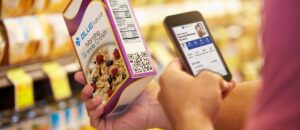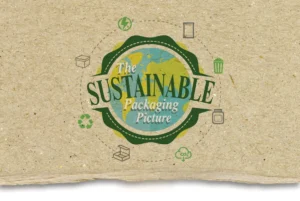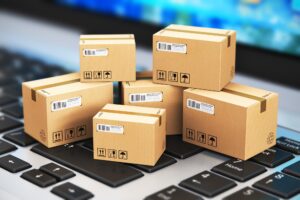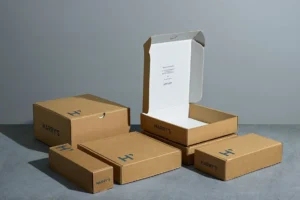Packaging science is the study of how packaging affects the quality and safety of food, beverage, pharmaceuticals, and other products. Packaging professionals use their knowledge of chemistry, physics, engineering, and other disciplines to develop new packaging materials and technologies that improve product quality while reducing environmental impact.
In this blog post, we will discuss the basics of packaging science and what it means for you and your business!
What is packaging science and what do packaging scientists do?
Packaging science is the study of designing and creating packaging for products. It involves understanding how different materials interact with each other and with the product, in order to create packaging that is both functional and aesthetically pleasing.
Packaging scientists must have a strong knowledge of physics, chemistry, and materials science in order to be successful in their field. They use this knowledge to develop new packaging materials and designs, as well as to test the performance of existing packaging.
In addition, they must be able to effectively communicate with both engineers and marketing professionals in order to create packaging that meets the needs of both groups. As the world becomes increasingly reliant on packaged goods, the role of packaging scientists will become even more important.
How has the role of packaging science changed over the years?
Packaging science has come a long way since its humble beginnings in the early 20th century. The first Packaging Research Laboratory was established in 1926, and since then the field has grown exponentially.
Today, packaging science is a multidisciplinary field that draws on knowledge from disciplines such as chemistry, physics, materials science, and engineering. The goal of packaging science is to develop safe and effective packaging for all types of products, from food and beverages to pharmaceuticals and medical devices.
With the ever-growing list of items that need to be packaged, the role of packaging science is more important than ever. As the world becomes increasingly reliant on packaged goods, packaging scientists will continue to play a vital role in ensuring that these products are safely and effectively contained.
The benefits of a career in packaging science
A career in packaging science can offer a variety of benefits. For one, it can be a very stable and secure field. Because packaging is essential for virtually all industries, there will always be a demand for packaging scientists.
In addition, packaging science is a highly interdisciplinary field, which means that there are many opportunities for career growth. Packaging scientists need to have a good understanding of materials science, chemistry, physics, and engineering in order to be successful.
As a result, those who enter the field often have the opportunity to learn new skills and advance their careers. Finally, packaging science can be a very rewarding field. Seeing the results of your work on store shelves or in people’s homes can be very satisfying.
Knowing that you helped to create a safe and effective package can be a great source of pride. If you’re looking for a stable and rewarding career, consider pursuing a degree in packaging science.
What skills are needed to be a successful packaging scientist
A successful packaging scientist needs a variety of skills. First and foremost, they need to have a strong understanding of the materials they will be working with. This includes both traditional materials like paper and plastic, as well as more specialized substances like gels and foams.

They also need to be familiar with the manufacturing processes used to create packaging, as this can have a major impact on the final product. In addition, packaging scientists need to have strong analytical skills, as they often need to troubleshoot problems and find solutions that meet the specific needs of their clients.
Finally, good communication skills are essential, as packaging scientists often need to work closely with clients and other members of the supply chain. Those who possess all of these skills are well-positioned to succeed in this challenging and rewarding field.
How to get started in a career in packaging science
There are many different ways to get started in a career in packaging science. One way is to pursue a degree in packaging science from a college or university.
Many schools offer programs that focus specifically on packaging science, and these programs can provide you with the knowledge and skills you need to succeed in this field.
Another way to get started in packaging science is to find a job with a company that specializes in packaging products. This can give you the opportunity to learn about the different aspects of packaging science and gain practical experience working with various packaging materials.
Regardless of how you choose to get started, pursuing a career in packaging science can be a rewarding and challenging experience.
The future of packaging science
The future of packaging science looks very promising. New materials and methods are being developed all the time to make packaging more effective and efficient. For example, nanotechnology is being used to create stronger and lighter materials, which could be used to make more sustainable packaging.
In addition, 3D printing is being used to create customized packaging that can be tailored to the specific needs of each product. As technology continues to advance, it is likely that even more innovative packaging solutions will be developed. This will not only benefit businesses, but also consumers, who will have access to better-quality and more sustainable packaging.
The history of packaging science
Packaging science is a relatively new field, but its history can be traced back to the early days of commercial trade. In the medieval era, merchants would wrap their goods in cloth or straw to protect them from damage during transport.
Later, wooden crates and barrels became the standard way to ship goods around the world. It was not until the 19th century that packaging began to be developed as a science.
Early innovations included tin cans, which were first used to store food for soldiers during the Napoleonic Wars. Glass bottles and jars were also developed during this period, and advances in papermaking led to the development of cardboard boxes.
Today, packaging science is an essential part of almost every industry, from food and beverage to pharmaceuticals and electronics. Thanks to ongoing research and development, it is constantly evolving to meet the ever-changing needs of consumers and businesses.
How does packaging science benefit consumers and manufacturers
Packaging science is the study of how to best protect and preserve products during transportation and storage. It includes considerations such as packaging materials, design, and methods of construction.

By understanding the properties of different materials and how they interact with one another, packaging scientists are able to develop packaging solutions that are both effective and cost-efficient.
The benefits of packaging science extend to both consumers and manufacturers. For consumers, well-designed packaging can help to ensure that products arrive in perfect condition. This is especially important for perishable items such as food and pharmaceuticals.
In addition, good packaging can help to extend the shelf life of products, which can save money and reduce waste. For manufacturers, packaging science can help to improve the efficiency of production lines by reducing damage and optimizing the use of materials. In addition, it can also help to create a more positive customer experience by ensuring that products are well-protected during transit.
Ultimately, packaging science provides benefits for both consumers and manufacturers by protecting products and reducing costs.
What are some of the challenges faced by those in the packaging science field?
Packaging science is a relatively new field, and as such, there are still many challenges that need to be addressed. One of the biggest challenges is designing packaging that is both safe and effective.
This requires a thorough understanding of materials science, as well as how packaging will interact with the product it is meant to protect. Another challenge is making sure that packaging is environmentally friendly. This means using materials that can be easily recycled or composted, and finding ways to reduce waste during the packaging process.
Finally, the packaging industry faces the same challenges as any other industry when it comes to globalization. With competition coming from all over the world, companies need to find ways to stand out in the market. These are just some of the challenges faced by those in the packaging science field.
What do you think will be the future of packaging science?
It’s hard to say what the future of packaging science will be, but there are a few major trends that are likely to shape the field in the years to come.
First, there is an increasing focus on sustainability. With consumer awareness of environmental issues on the rise, packaging companies are under pressure to find more eco-friendly solutions. This could mean using recycled materials, biodegradable packaging, or finding ways to reduce waste throughout the packaging process.
Second, there is a growing demand for convenience. As our lives get busier and we have less time to shop and prepare meals, we’re looking for packaging that can make our lives easier. This could include things like easy-open packs, resealable bags, and single-serve portions.
Finally, there is an increasing emphasis on health and safety. With the rise of food allergies and foodborne illnesses, consumers are demanding stricter safety standards for packaged foods. This could lead to changes in ingredients, labeling requirements, and packaging materials.
Whatever direction packaging science takes in the future, one thing is certain: it will continue to play a vital role in our everyday lives.










